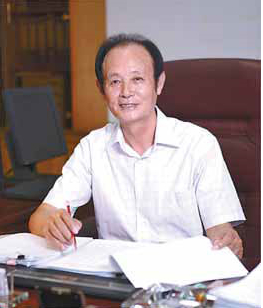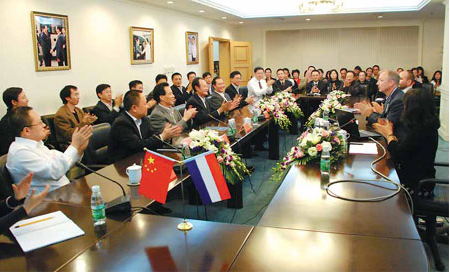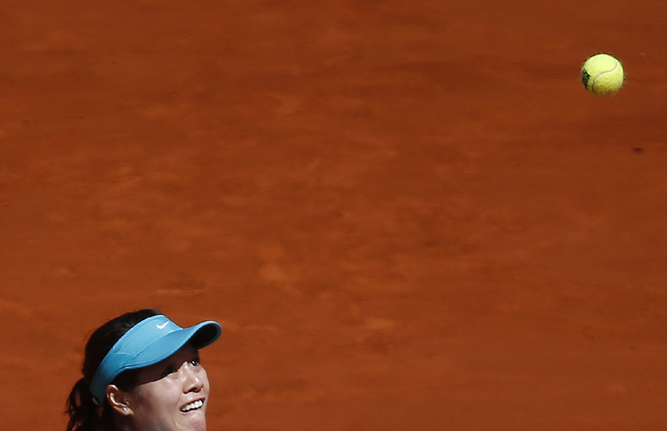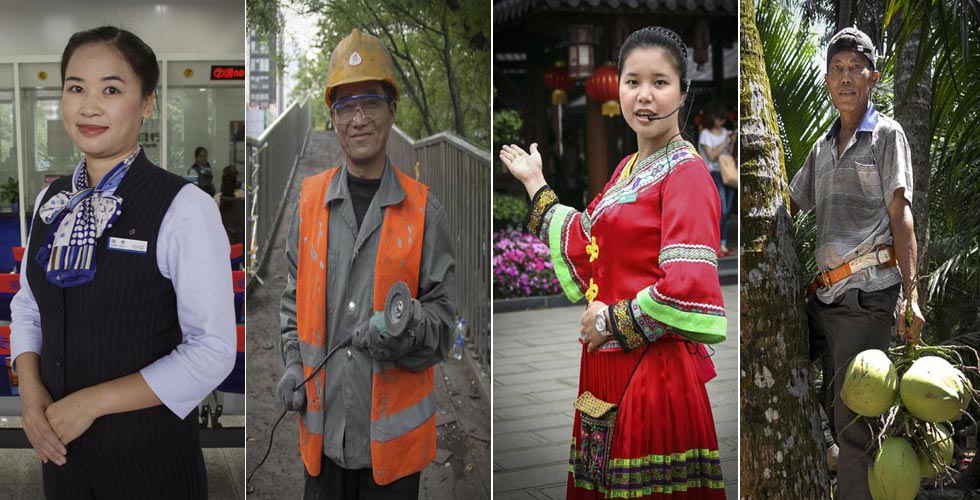Chengdu Diao brings TCM cures to world
Updated: 2014-04-30 11:10
(China Daily)
|
|||||||||||
Traditional drugs finding new respect in Europe, US
Chengdu Diao Pharmaceutical Group Co, the biggest pharmaceutical company in western China by revenue, is expanding its presence in Europe as it pursues a stronger foothold in a tough market that's had limited access to traditional Chinese medicine.
President Li Bogang says the company is in the process of registering its core product - Diao Xin Xue Kang capsules - in the United Kingdom and Germany. The product was licensed by the Dutch Medicines Evaluation Board in 2012, making it the first TCM drug to receive marketing authorization in a Western country.
The drug, which comes in capsule form, was developed in 1988 after eight years of research by a team led and funded by Li. The product, classified in the Netherlands as a Chinese herbal medicine used for treating myocardial ischemia, has been widely used in clinical treatment in China for more than two decades.

"Because both Britain and Germany have larger populations than the Netherlands and better knowledge of Chinese medicine, we hope more European consumers and patients can now benefit from the clarity provided by the registration granted by the Dutch authorities," Li says. "For our product, there has been a careful evaluation of quality, benefits and risks."
Under mutual recognition arrangements within the European Union for the registration of medical treatments, foreign medicinal products must undergo a number of application procedures to expand their authorization scope to other EU countries.
Even though TCM products are already sold in major international markets, they're marketed solely as dietary supplements or non-medicinal treatments, as opposed to being marketed as therapeutic drugs.
In 2011, the European Medicines Agency ordered that all TCM products must undergo a registration process before entering the European market, making it more difficult for TCM products to penetrate the Western health services market.
As big multinational companies such as Denmark's Novo Nordisk AS, Pfizer Inc and Eli Lilly and Co of the United States have heavily invested in China, Li says capable Chinese pharmaceutical companies must make changes and readjust their development models to seek new market growth points. Companies must focus on "either maintaining the country-level market share or making the move to overseas markets," says Li.
To support its expansion efforts in the Dutch market, Chengdu Diao chose to work with a local pharmaceutical company to promote its products in hospitals and pharmacies.
In terms of expanding the domestic market share, Li says the company is stressing the differences between today's living conditions in China and those of the past, as well as the differences between Chinese people and those in other countries. In this way, the company can distinguish market segments. The company has conducted research to understand these differences, and it's also accounting for lifestyles and dietary habits.
With China becoming more affluent, living habits normally associated with type II diabetes, such as being overweight, exercising less, rich diets and sugary drinks, have become more common. Environmental pollution is also contributing to the growing incidence of cancer.
Given these circumstances, Li says the company will continue to invest in medical research and development in the fields of cancer and diabetes to catch up with more established foreign rivals in the country.
"In comparison with many products of multinational companies, our specialty involves putting helpful TCM elements into medicine to improve the cure rate," says Li.
With four pharmaceutical plants and 9,000 employees, including 1,780 research staff in Sichuan province, Chengdu Diao's revenue grew 5 percent last year to 2 billion yuan ($322 million). The company invested 80 million yuan in R&D last year.
Medical research and clinical trials for new drugs are expensive processes, so Li began to diversify the company's business operations by venturing into the coal and nonferrous metal mining businesses in the past decade. The company also got involved in the real estate business in Chengdu to support different projects carried out by its medical research departments, collaborative institutions and universities.
To prevent soil contamination, avoid excessive use of pesticide and ensure product quality, Chengdu Diao established a number of raw material planting bases for TCM production in provinces such as Yunnan and Sichuan, as well as China's Northeast region. Its biggest planting base is in Luoning county of Central China's Henan province, where it uses 330 hectares of land to raise medicinal materials to meet the market demand.
The company also plans to enter the US and Canadian markets over the next three years, because those countries have more Chinese communities and potential consumers than Europe.
Li Junde, secretary-general of the Association of Traditional Chinese Medicine of China, says the development of chromatographic fingerprint analysis techniques in China and developed nations has allowed more people to understand the composition of TCM products.
Using this technique can help examiners ascertain the ingredients of certain batches of TCM by comparing the chromatographic fingerprint with the standard specimen of the medicine.
A TCM prescription normally involves more than 10 herbs, each having to be cooked, dried, smoked and/or crushed to release their nutrients.
"Most Western medicines are unitary chemical compounds. Their purity and content have a direct bearing on their safety and curative effect," says Li from the ATCMC.
"With TCMs, which are made of two or more ingredients, the curative effects of the medicine can never be attributed to one component."
Contact the writers through zhongnan@chinadaily.com.cn.
 |
|
A celebration is held by Chengdu Diao Pharmaceutical Group Co for production lines of its Diao Xin Xue Kang capsules getting a Good Manufacturing Practice certificate from European Union. Provided to China Daily |
Hot Topics
moon rover air defense identification zone CPC and reform China and Japan air pollution Cameron in China
Editor's Picks

|

|

|

|

|

|






